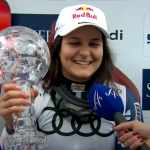Just what did Prime Minister Andrej Plenković take away from finally attending a meeting with Croatian entrepreneur Mate Rimac at Rimac Automobili in Sveta Nedjelja?
As Poslovni Dnevnik/Ana Blaskovic writes on the 30th of June, 2019, after Mate Rimac reached out with apparently little response from the HDZ leader, this is now the second time in one week that entrepreneur Mate Rimac, owner of Rimac Automobili, and Prime Minister Andrej Plenković have spent time together.
The pair held a meeting at the headquarters of Mate Rimac’s company in Sveta Nedjelja, along with representatives of both Hyundai and Porsche, as well as five government ministers, and discussed the potential of attracting investment and stength to the car industry in Croatia.
“The car industry is changing and this is a chance for Croatia. We want to bring the best quality industry, not one based on cheap labour. We have the support of our investors. We want to work together on it and not end up saying that we’ve missed out on the car industry of the future. Let’s create the conditions for foreign investors to make it interesting for them to come to Croatia,” said Mate Rimac, when presenting the Croatian Government delegation his concrete guidelines for attracting investors to the car industry, a study which has taken him two years to complete.
When it was recently announced that Croatia’s GDP grew by 3.9 percent in the first quarter, this news triggered the politicians’ sense of self-praise and the disbelief of numerous experts, including those who doubted the fiture, and claimed it was a mistake.
That alone is the precise picture and opportunity of the Croatian economy which is continually growing faster than its potential ever can. Slow and expensive administration, high taxes, too large a share of the state in the economy, a generally fixed set of labour prices; all of this is extremely off-putting to Croatian entrepreneurs, and makes the country very uninteresting to foreign investors (with the exception of those wanting to flash their cash in the otherwise successful field of Croatian tourism) and as such, limits any prospects for a better future in terms of foreign investment in Croatia’s other economic branches. Not counting tax breaks, the Croatian Government had to rather dramatically put out fires in two large and significant companies – Agrokor and Uljanik.
That’s a meeting with the likes of Mate Rimac and his company’s investors from Hyundai and Kia, as well as an extensive presentation on the possibilities of attracting foreign investment to the car industry in Croatia was an excellent and likely eye-opening opportunity for the head of the Croatian Government and his delegates.
Mate Rimac has succeeded beyond anyone’s wildest dreams thanks to the killer combination of sheer talent, stubbornness, and enthusiasm, but large car makers will pay much more attention to their investment decisions through comparative advantages, which implies exclusive figures, and not sentiment, emotions or feelings.
“Croatia needs interest in the car industry like the level of interest that exists for the football team, you’ll get our support in technology and our experience, but that isn’t going to be enough,” said Porsche’s Lutz Meschke, vice chairman of the executive committee.
Initiatives always come from the private sector, which best knows any real economy, but then the state gets involved. With concrete moves and reforms, Croatia could attract investment and entrepreneurship development. A sample example is the Czech Republic, where industry makes up a third of the economy, with the car industry accounting for about six percent of gross added value. The Czech Republic is now at an impressive 90 percent of the EU’s development average, and Croatia is currently at 63 percent.
It’s unrealistic to expect that Croatia will repeat the successes of the Czech Republic or Slovakia and employ tens of thousands of people like it once did in shipyards, but the tectonic changes in that industry are a chance we must not miss on. It opens the door to creating high value-added jobs for the highly educated, for innovators and creatives, as well as opening the door for productivity growth. And finally, that we import intelligene.
”I think we’ll continue to cooperate, work synergistically, and see which concrete moves the Croatian Government will make,” the prime minister promised.
Make sure to follow our dedicated business and Made in Croatia pages for much more.








